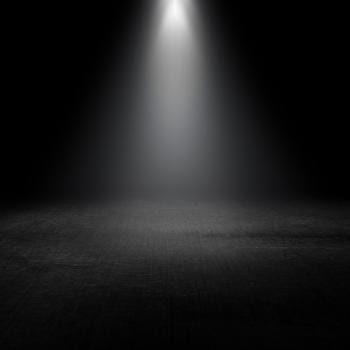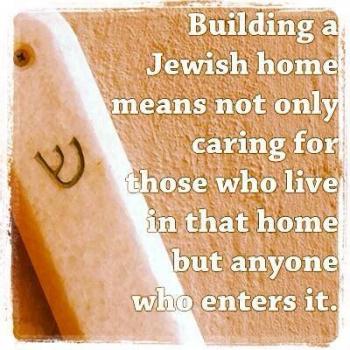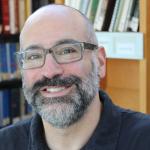By Gregory
One of the most overlooked biblical commandments is to remember. Remember the Sabbath and keep it … remember that I am the Lord Your God who brought you out of the Egypt … remember to keep my commandments so you can be holy …and so on.
Even God remembers – And God heard their groaning, and God remembered his covenant with Abraham, with Isaac, and with Jacob. (Exodus 2:24)
It’s odd; the command to remember appears more often than the command to love your neighbor as yourself. Why is memory such a big deal that God commands it so often?
I’d argue that memory is essential because humans are forgetful, easily distracted creatures. But more importantly, forgetfulness can be damaging – it deprives us of our history, our identity, and our place of meaning in the world.
Memory is our context for self and for meaning. Memory is fidelity, it offers identity and liberates us from our isolation by opening us to our connections with others – for these reasons, and others, it plays a vital role in the spiritual life.
Remembering & the December Holidays
Few would argue that humans are forgetful and easily distracted. We set out with good intentions to achieve some goal and easily lose our way among the details and side issues.
Christmas and Hanukkah are great examples of this tendency to forget. Both holidays have clear and powerful spiritual significance, yet we easily get all caught up in the glitter, the gift giving, the food, and the frantic preparations – that we forget the central reasons for celebrating the holidays in the first place.
(Glittering things aren’t bad in themselves, after all, no one is advocating we celebrate the holidays quietly reflecting on eternal mysteries in a dark room. But sometimes, the things we use to celebrate deeper truths take on a life of their own and distract us from their original purpose.)
Consider Hanukkah, a holiday with many layers of meaning that are rooted in historical realities. Hanukkah is a great time to make latkes, give gifts, gather with family and friends, and light candles. But it’s also a superb time to focus on the deeper meanings of the events they are intended to recall – the role of courage in the spiritual life, the importance of asserting one’s true identity even if means being different than those around you, the importance of standing up for what you believe and challenging stronger powers not aligned with those values – Hanukkah is rich in meaning (as is Christmas).
Zachor & Anamnesis
In the biblical worldview, memory is not principally or exclusively a relationship with the past. It is also a bond with the present that projects itself forward. The bible speaks of remembering as awakening; recalling is enlightenment, the recognition of truth and identity.
The Jewish notion of remembering also features the added element of not merely celebrating the events we recall, but reentering them – of participating in the actual event in some spiritual way and therefore bringing the event into the present moment.
The most common example of this thinking is when Jews celebrate the Passover Seder, we are not merely recalling the Exodus, but in some real way reliving the actual liberation from Egypt.
The Mishnah reinforces this notion, “In every generation one is obliged to view oneself as though he (or she) has personally gone out from Egypt.”
As Rabbi Dan Fink explains:
Pesach is not about remembering the distant past; it is about re-experiencing that past in the present time. It is not the story of our ancestors long ago; it is our story. Our challenge is to consider what enslaves us — anything and everything from money to television to old, stale habits — and find ways to free ourselves from those burdens. The Hebrew word for Egypt, mitzrayim, means “a narrow place.” This spring festival of deliverance is the time of our own liberation, an opportunity to renew ourselves.
Many Christians, Catholics and the Orthodox especially, share with us Jews this same notion of remembering, reenacting, and reliving.
For example, Catholics and Orthodox Christians believe that the Mass/Divine Liturgy is not merely a reenactment of the Last Supper and Jesus’ offering himself on the Cross, but it’s a spiritual participation in the actual events.
Catholic writer Karl Adam offers further insights:
At Mass, we are present at the sacrifice of Calvary. Space and time are abolished. The same Jesus is here present who died on the Cross. The whole congregation unites itself with his self-sacrifice and present it to the Father as a living oblation. Therefore, Mass is the experience of the reality of Golgotha.
The Catholic concept of anamnesis Greek for recalling, corresponds to the term zachor, Hebrew for remembering. And the theological significance of both involves the use of ritual to take past events and make them present realities.
Remembering & Recollection
But what do we gain from remembering and from reentering past events? I’d argue that underlying the concepts of anamnesis and zachor is the notion of recollection.
The word recollection has two, overlapping meanings. The popular meaning is recollection as remembering. We recollect forgotten facts.
However, the word also a theological and philosophical meaning – recollection as a making whole – the collecting of shattered and disparate pieces into a meaningful unity. In this sense, recollecting is a spiritual practice and a form of healing.
When we remember fundamental facts about our identity, we can be called back, even given back to our better, original selves.
The biblical commandment asking us to remember and even reenter core events of our spiritual journey is a call for us to remember our fundamental identity – we are redeemed people, we have been freed from slavery and narrowness – our better self is the free person created in the image of our redeemer, and called to live a life in accord with that true identity (as expressed in the terms of the Covenant).
The same principle holds for Christians and the Mass or for the upcoming holidays of Christmas and Hanukkah.
We are asked to stop, pause, and remember – remember who we are, remember our true origins and status, remember the significance of our relationships, remember our vocation of love, remember our obligations to others – remember our true name.
Mishkan T’filah, our Reform Siddur says it well:
We are a people in whom the past endures, in whom the present is inconceivable without moments gone by. The Exodus last a moment, a moment enduring forever. What happened once upon a time happens all the time.
As our winter holidays of Christmas and Hanukkah approach, let us not merely be nostalgic for days gone by – let us remember the deeper meanings of the events we celebrate and let our celebration and remembering make us whole and better people.
As always, I welcome your comments and thoughts.











